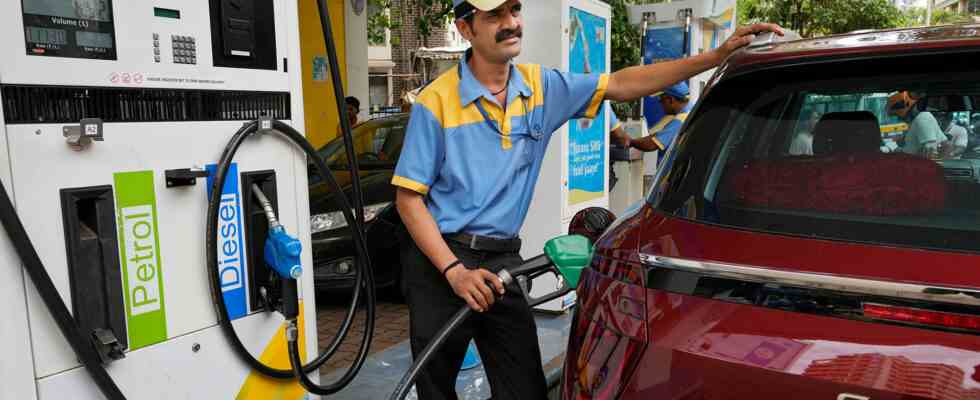Status: 07.08.2022 12:41 p.m
Since the beginning of the war in Ukraine, numerous countries have stopped importing Russian oil. India in particular will benefit from this. Because of the boycott by Western countries, Russian oil is particularly cheap.
In the stuffy office of a petrol station in Delhi, the workforce discusses their day-to-day work. The streets of India are now just as busy as before the pandemic. The gas stations are correspondingly busy. However, the small employees do not earn more money as a result. Others rake in the profits, tanker driver Ansar scolds: The refineries, he says, are making the big bucks.
India’s refineries have traditionally relied largely on imported crude oil. The Gulf States are traditionally an important supplier, but so is the USA. But something has changed: domestic refineries are getting more and more crude oil from Russia. And since the beginning of the war of aggression in Ukraine.
Import has quadrupled since February
Analysts estimate that imports of Russian crude oil have quadrupled since February. A purchasing policy that boosts Indian profits. Because Russia sells its crude oil up to ten percent below the world market price.
The Indian economist and government advisor Narendra Taneja sees nothing reprehensible in his country’s desire to buy: “For us, oil has nothing to do with politics. It’s a commodity. We look around the world market and of course look at the price.” You buy oil in the country that offers the most attractive price: “Not out of love for Russia, but for economic reasons” that’s why you buy Russian oil.
He does not accept criticism from the USA or other western countries. India has a long friendly relationship with Russia. He also argues: “Many in the West import Russian oil and gas themselves. They’ve been doing this for decades,” Taneja criticizes the double standards of Western countries: “They import themselves and think they have the moral right to teach other countries? We’re allowed to import, but you don’t. What’s that supposed to mean?”
High inflation
The Indian central bank has raised interest rates for the third month in a row. Indian central bank governor Shakkanta Das said the interest rate would be raised from 4.90 to 5.40 percent. Persistently high inflation could destabilize price expectations and impair growth in the medium term.
Retail prices rose 7 percent in June. This means that inflation should also be above the central bank’s target of two to six percent for the rest of the year. Economists also expect further rate hikes in the coming months.
Products are exported worldwide
India’s freight trains not only have more Russian oil to distribute in the country – coal and fertilizer imports from Russia have also multiplied. Carsten Brzeski, chief economist at ING, believes it is unlikely that India will now turn its back on Russia and the West completely: “For countries like India – emerging countries that need growth – it’s not enough just to get cheap energy. It’s also a lot Capital.” And this capital for direct investments mostly comes from the west, according to Brzeski.
In any case, India’s gas stations will remain well supplied for the time being. The country’s oil industry has found a profitable, if not uncontroversial, market niche. Not just for personal use, by the way. Because the products that are made here from Russian crude oil are not subject to any trade sanctions and can be exported all over the world.
India’s thirst for Russia’s oil
Sebastian Manz, ARD New Delhi, August 5th, 2022 09:15 a.m

